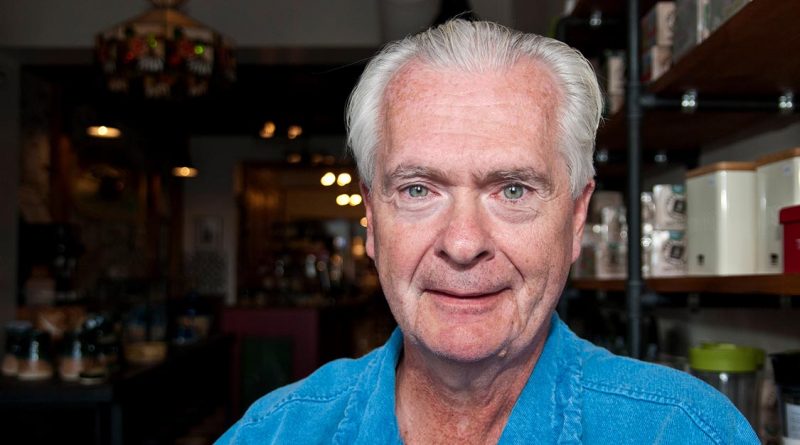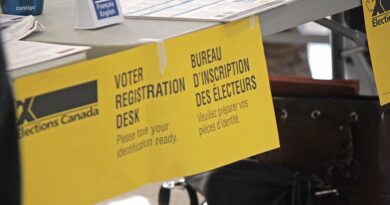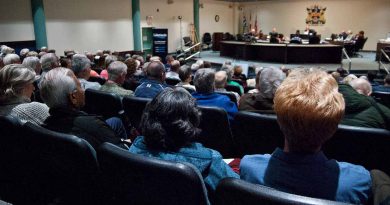The Road To the Federal Election
SUNonline coverage of the October 21, 2019 federal election continues with profiles of candidates running in Simcoe North. Interviews are presented as a series about a candidate’s life journey, background in the riding, political philosophies, and the platforms they and their parties have. Each candidate appears in the order they were interviewed.
Chris Brown: Doing God’s Work
By John Swartz
Chris Brown is representing the Christian Heritage Party (CHP) and it’s his first involvement in the political process.
“Apart from voting, no,” said Brown, “not even a party affiliation. I used to vote conservative all the time, thought Harper would do something on the abortion issue.”
He lives was born and raised in Toronto and graduated from Centennial College’s child care worker program. For many years he worked in schools, the court system and with families for private and public agencies.
“We never really worked with youth apart from the families. There were occasional times where that happened, where the kids were actually pulled right out of everything,” and into institutional settings Brown said. ‘School happens there, counselling happens there, it was at that time a complete program to engage the youth, the family, anyone else who was involved.”
He left that career to take care of both his parents when they became ill. He then worked as a courier and doing home renovations, retiring 4 years ago. He moved away from Toronto to live in the cottage his parents bought in the 1950s in Hastings. His decision to stand as a candidate was a process fueled by dissolution.
“I’m sure there’s a lot of us like that, conservative, pro life, that were hoping and were just crushed when nothing came from him (Harper). That was very disheartening. Now when Scheer came, he was pandering to the pro life crowd to lead the party and as soon as he got in he basically turned them down. I thought, that’s it, I’m done trying to support conservatives. My brother (Lance) and I were talking and we talked about, “why don’t you run for the CHP? It represents a lot of the things you already believe,”” Brown said.
His brother was influential in choosing to run in Simcoe North instead of Hastings–Lennox and Addington where he lives.
“Actually I don’t think there is a CHP candidate in that riding, sadly. Lance is up here in Orillia, Adrian (Kooger, former CHP candidate) has run a number of times and they were looking for someone new and they talked to me about running up here in this riding.”
He believes he’s familiar enough with Orillia to run a campaign here.
“On a scale of 1 to 10, I wouldn’t have to say I have a great familiarity with the riding, it’s more basic, I think I’d put it at a 5,” he said. “(I know) some of the things that are around, the attractions, of course Lance lives here so I’ve been here a couple of times visiting.”
The Party
There are three things about the CHP that Brown likes.
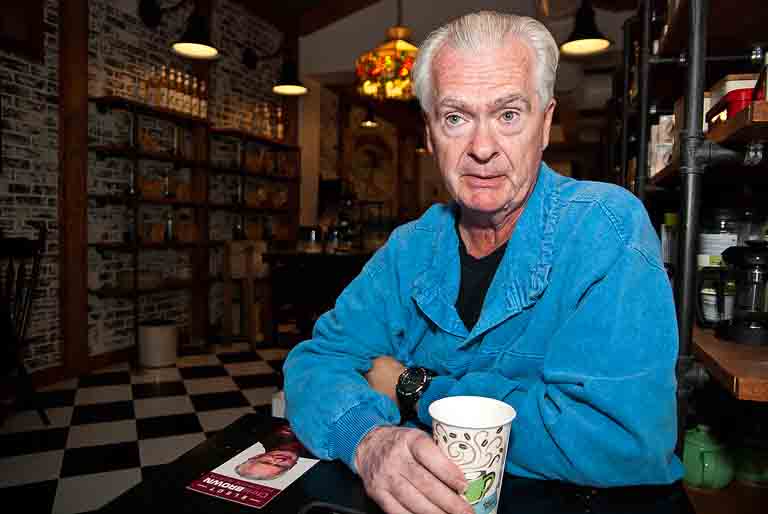
“As the name of the party, the Christian Heritage Party, the Christian heritage that was responsible for building this country in terms of setting laws and freedoms, that sort of thing; I don’t know you’d go as far to say that the government was ever a Christian government; it was a Christian country for sure, and the government represents that country, but the Judeo-Christian influence on all those things is what made Canada great. The name is right there. I can support that and it’s one of the things that I think we need to return to, absolutely. I see it as absolutely essential for anything going forward for Canada.”
“The position they take on abortion, I’ve been involved in the anti- abortion movement for a long time, so that was a natural fit for that.”
“The opportunity that they present, the freedom that they present in the party to speak to how you feel God moves you was another aspect of me becoming involved with them,” said Brown. “I think those would be the three main things.”
Canada is a long way from being a country governed by religious intent. Certainly in the formative years, maybe the first 100, people were more religious than today, which would have influenced many of our legal foundations and governing decisions – we were after all a land that did not permit Sunday shopping until the 20th century was almost over – but even in those times people recognized government affected more than those in the congregation of particular religion. So, how would the CHP function in a government over a secular society?
“I wouldn’t say we’re atheist (as a country), we’re not there yet. I don’t know if we’d ever get there, but secular for sure, in the sense that we have abandoned a lot of those things and moved on, so to speak,” Brown said.
“There are laws that are made for everybody, and that’s the way it has to be. You can’t just make laws for one group. It has to apply to everybody. So again, you have to use the Christian doctrine, the Christian faith as your guide for that. You have to start somewhere with it. We have a lot of that insight and we’ve drifted away from that. You’ve got judges that are making decisions on what does the charter say, actually forming laws that they shouldn’t be doing. That should be done by parliament.”
Abortion
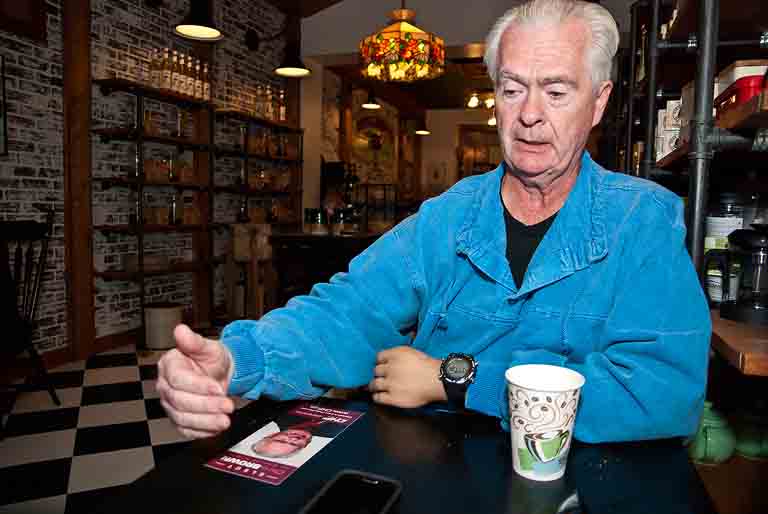
Central to the CHP philosophy is abortion. The party plank is strongly opposed to it so it is fascinating to have discussion that examines it from a few perspectives. For Brown there is unfinished business regarding the subject.
“I’m look at what the Supreme Court had to say back in 1988 and the existing laws at that time that had been transformed by Pierre Trudeau were all stuck down. After that point Canada had no law, and still has no law. They didn’t just stop there, they said to parliament, “go and make some laws, make some better ones because these ones didn’t quite cover it.” But they also said that the unborn need protection, they need those laws. They never settled the issue. Since that time nobody has fixed it.”
“From me, from the Christian perspective, that’s not right. From a secular perspective I can see how people wouldn’t have a problem with that because not all, but some, would certainly say it’s a choice. If they don’t see it as a human life, they see it as a choice, then they make their decisions accordingly. From our perspective it is a life and so that’s where the Christianity part comes in, that shouldn’t be happening, that’s not right in God’s eyes.”
“The killing of the unborn in God’s eyes, you’ve got to stop that guys. As far as I’m concerned I can see that God has pulled his blessings from Canada and I think that issue has an awful lot to do with it. If I’m a Christian and I see that, if that’s what I believe, then I should be out there fighting for Canada, fighting to get back that blessing because without that blessing I don’t see us going anywhere.”
Canada is also a very long way from how we were made up in 1988, and that fight for access to abortion was debated for several decades prior – we are no longer a nation predominantly protestant or catholic, in fact in the 2011 census almost 25 percent declared no religious affiliation. Is there room for law desired by some imposed on all?
“When I look at that it’s like is it a life, or isn’t it a life, and that’s the big debate. Even secular people, if they thought it was a life and you’re taking that life, I think a lot of them would have a hard time with that and they are saying it not based on any kind of religious faith, just on their interpretation on how they see the facts.”
“Here you have a woman and she’s claiming what right do you have to interfere with my right to do what I want with my body. My response to that is, you know what? If there wasn’t an innocent life involved, then exactly. Why would anyone assume they have the right to say anything about what you do? But, reality is, when you are pregnant, she’s got to heads, she’s got two heats, one of them is hers, one of them is someone elses, and that’s a fact. That’s not anything to do with religion, it’s a simple fact there’s two bodies involved and I don’t think anyone should have the right to arbitrarily decide what happens with that person.”
So are we talking the Alabama solution, which is so restrictive regarding access it criminalizes medical personnel. In that state, starting in November, the chance of getting an abortion, even in cases of rape or incest is not possible. Women will be forced to prove miscarriages weren’t abortions. Many say that is harsh.
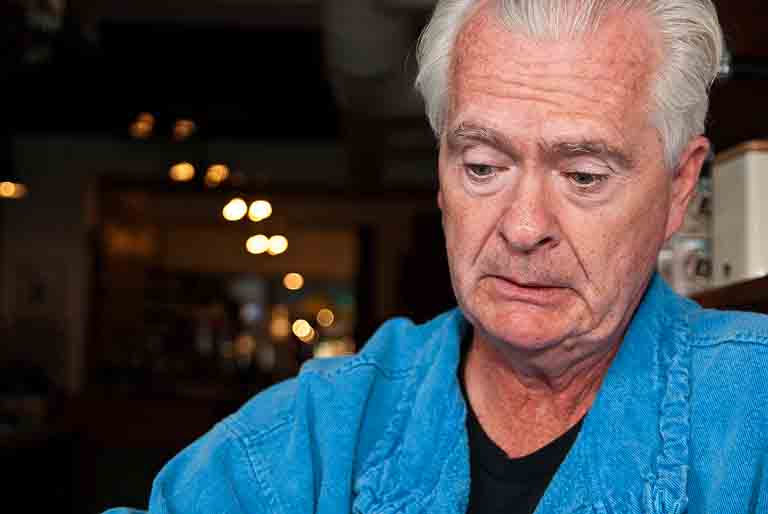
“I do too. I think there are medical emergencies,” said Brown. In Alabama there is provision where there is “serious health risk” to the woman, but it remains to be seen how narrowly courts might determine what that is.
There are other arguments against banning abortion. Half of all fertilized eggs do not result in pregnancy, so some argue why the distinction in the earliest weeks. Some also argue until a certain point those cells are not different than others like cancer cells, viruses or bacteria which could also be defined as living cells.
“First as far as the living cells go, they are only going in one direction, they are not going to develop into anything else other than a human being, if they develop. We’re not just talking about some living things, we’re talking about a human and we have to ascribe more value to that than anything else. So other things like bacteria and stuff like that, I’d call that a red herring because it just not the same. It’s like apples and oranges. Yes it’s life, but it’s not the same.”
“In terms of what point do those cells form something, you have a heartbeat at 6 weeks, you’ve got other body parts forming right after that. By the time you hit 12 weeks you have a fully developed embryo that looks like a human. It has hands, feet, toes, fingers, has organs going, heart has been beating, you’re getting into at what point do we say does life begin. At what point do we say that’s’ human life. Do you go back to the point of conception? Do you jump ahead to the 6 weeks point where you have a heart beating and further development after that? Most of the abortions happening right now are happening, by the way, up there around the 12 week point in the first trimester.”
“Even here in Canada, even there is no law, there aren’t any abortions actually that are being committed in the third trimester. I think even in medical emergencies doctors just don’t perform that up here. The court back in 1988 never gave a woman a right to an abortion, so a woman can’t say, “you have to, I’m Canadian, you have to do that.” So doctors have that loophole and they opt out of it. You could have a woman here who has a dire emergency, a medical emergency to do with the pregnancy, either that or there’s something terribly wrong with the child, doctors won’t do it here. They have to go to the States to do it. So that’s just an agreement they have throughout the whole community. There’s no legal precedent put on it.”
Even at 6 weeks, many woman don’t know they are pregnant, and in many places that do allow abortions within the first 6 weeks then would be too late.
‘When it comes to setting a point in time, even before we get to that heartbeat, those cells that are forming, they are going to become a human being. They are not going to be anything else. That would be like the minimum expectation that I think anyone really could have. If further research proves something more, that there’s more indications of life I would want to keep that option open. But minimum from a heartbeat on.”
Euthanasia
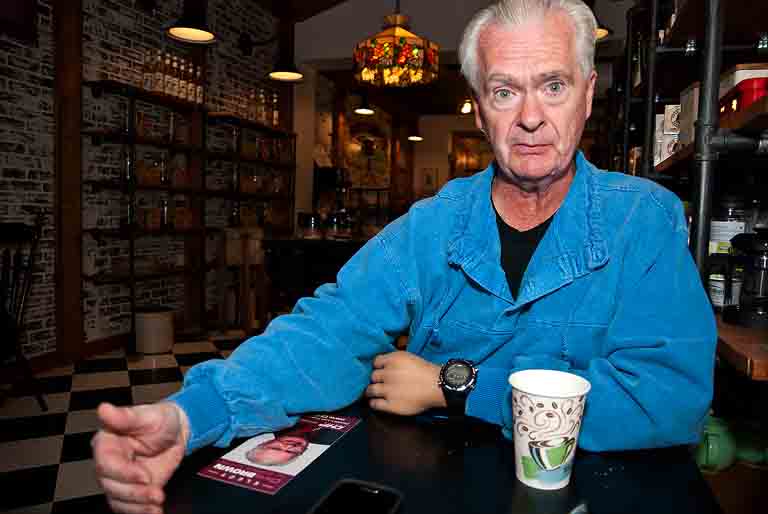
Another issue the CHP is against is euthanasia, which they reject in total. The counter argument drugs and machines can keep people alive long past the point they would have died without intervention is not considered in the party platform. On this point, Brown sees a distinction.
“Actually I guess my definition of euthanasia might be a little different than that. If you are at the end of your natural life, if you are being supported by a lung machine or something like that, the pulling of the plug type stuff, you would have died already had you not been on that machine, I can’t see why a person should be told no you can’t do that. That doesn’t make sense to me.”
“This is something I struggled with in terms of where CHP stand on this. I thought about it and discussed it with my colleagues and we came to the conclusion there is a difference between people on a machine or being drugged to extend life, not to just deal with pain. Those aren’t natural means, you’ve gone beyond that. Simply stopping that is not an act of committing suicide, even though it’s going to result in your death. It’s not active; it’s more passive in that sense, so I can see that happening.”
“But when you stray into the active side of it, actively asking for suicide to be committed upon you by someone else, a doctor, or other health provider, I think now you are into different territory. That’s when I say maybe the definition of euthanasia is something that would have to be talked about because I think once you stray into that territory, even though I can still empathize, even though I can still relate to deteriorating quality of life, everything to do with that, no hope of something better, some people are living with some terrible circumstances, but when you cross that line I believe you start on a slippery slope.”
“If you have a living will and the person’s standing there – OK, if I reach this stage I want someone to administer a needle to me, I will have a problem with that because now you are entering into an active assisted suicide. But if that living will says, listen if I get into an accident and all I’m doing is living on a lung machine, I don’t want to live like that, I want the plug pulled, OK.”
He spoke of a European case which revealed terminally ill minor were euthanized, making the case of how they could possibly consent. “Just that alone is enough for me to say I’m sorry I can’t say yes to that,” Brown said. He thinks who is making the decision on a case counts, and bureaucrats should definitively not be making the decision.
Climate Change
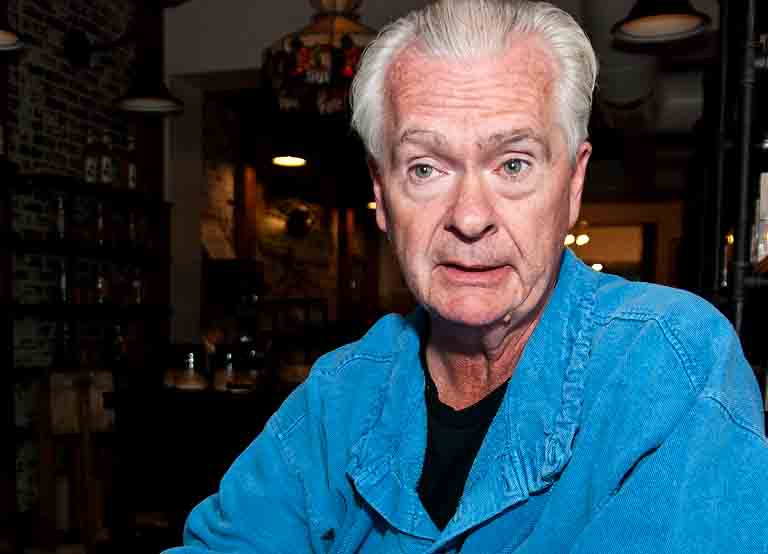
The party stance leaves no ambiguity, it rejects that climate change is man made and that in fact, CO2 is not a pollutant (which at normal levels it is not).
“I’m going to take us down a road. CHP does not support the idea that man’s emissions of CO2 are contributing to climate change. Our position is climate is changing, but it’s always been changing. I don’t think that’s disputed by anybody. Given that people are claiming CO2 emissions are currently behind what’s happening now, this where CHP and I agree that no, we don’t believe that. As far as it being a pollutant, too much of anything is a problem, but it’s not technically a pollutant. In fact, there’s parts of the earth that actually need CO2 in the atmosphere. By the way, photos are showing the Earth is as green as it’s ever been because of the increase of CO2. Is it necessarily bad, that’s where the question is.”
“What my research has shown is that the people that have claimed CO2 is behind rising temperatures, disappearing Arctic ice, rising sea levels, all that sort of stuff, when you look at what they do, they go back to 1980 and say – see. Sure enough when you look at those charts from 1980 temperatures are on a steady climb, sea levels are on a steady climb, Arctic Ice is disappearing at a steady climb. The problem is those graphs go back over 100 years. When you look at the rest of the history on those graphs then you see what’s really happening. It’s an absolute fraud what they are doing and they should be ashamed with themselves. That history shows, no, they’re not record temperatures. Back in the 1920s and 30s, lot hotter back then. In fact back in 1936 you got up to 120 degrees Fahrenheit down in the States, city after city. It was a terrible year; a bitterly cold winter, flooding in the spring, scorching temperatures, tornadoes, hurricanes, if it happened today everyone would be screaming climate change. There were no big CO2 emissions like that; it’s not like they weren’t there, but nowhere near the levels of today.”
Brown believes climate change is tied to something else, control, of us.
“Alright, so what’s all the big hullabaloo about? Isn’t it funny governments have picked the one issue they can tax? What a surprise. What’s the purpose of a carbon tax? Especially here in Canada, that’s a good question, it doesn’t do a darn thing. Has it got to do with something else? What’s behind this whole climate change thing? Now we start going down the dark road of this.”
“You go back to when George Bush Sr. was president, the early 90s, he comes out, State of the Union address to the entire Nation and he talks about – we’re going to form a new world order and its going to be great,” Brown said. “Nobody knew what he was talking about. The press hardly picked it up and afterwards there wasn’t a mention of it. He wasn’t the only one, but he was the only one who mentioned it publicly.”
Changing Economy, Those Left Behind
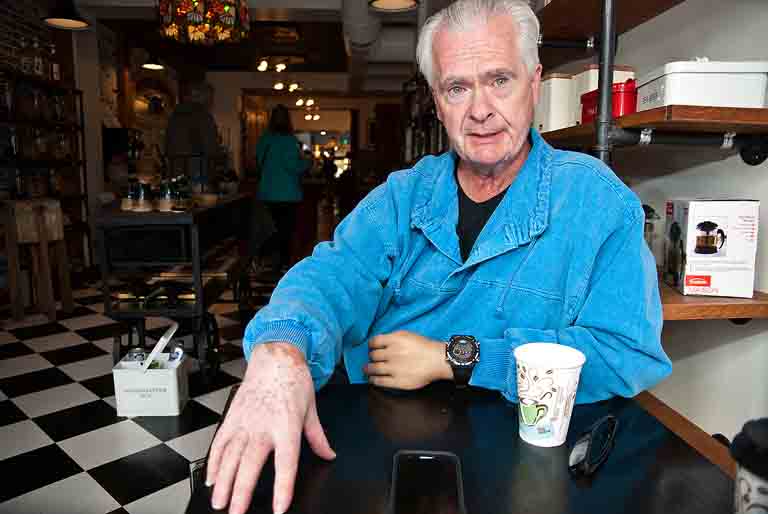
How do we deal with the potential of mass unemployment as technology takes over the workplace. Brown isn’t unaware, even if he doesn’t know the solutions.
“It’s something I’ve wondered myself a couple of times, what are you going to do with all these people that all this technology is going to displace. How are they going to live? How are they going to earn anything? What are they going to spend? What are they going to spend it on? I don’t think there’s any easy answer to that and I think it goes beyond just what we can see, or what seems obvious to us. I think somebody has a plan for that. How can a government plan for that? I have no idea, but I think somebody does,” he said.
“I think that comes to another issue. I think Canada and the rest of the world we are marching towards that one world order and I don’t think we are going to be able stop that.”
Orillia is staring at untold opportunities with the surety Hydro One is going to build a network control center here. There will be spinoff jobs and it might be the thing that attracts other tech companies to locate here. Does Brown see a role for government to make some investment, take advantage of our post-secondary schools, so our people can be ready for the future?
“The plan the CHP has to reform the bank of Canada to get those low to zero rate interest loans available and then to use those, not just for infrastructure, but to also lend to the provinces for universities that focus on the sciences, high tech and stuff, so you can draw those students in. it’s not quite the same as free tuition, but I don’t think the government should be making money off the student’s backs and family’s backs, make these things available to these students. Pay the principle back, that’s all, no interest. This is coming to Orillia, let’s get programs going so that we’re ready.”
Part of this subject is how much big business influences action taken many people don’t want, or foot dragging on things we do want – and it spills over to other issues, climate change, trade, media concentration, social media influence, etc.
“The big ones, I think they are part of the tail wagging the dog.” Brown said.
“Canada is so intertwined in what is going on globally I don’t think you can withdraw Canada from it. I think it goes even further than this. Parts of Europe, England, they’re ahead of us in terms of how far down this road they’ve gone and I think it’s only going to get worse in terms of how drawn into the bigger picture that’s going on Canada will become.”
Immigration
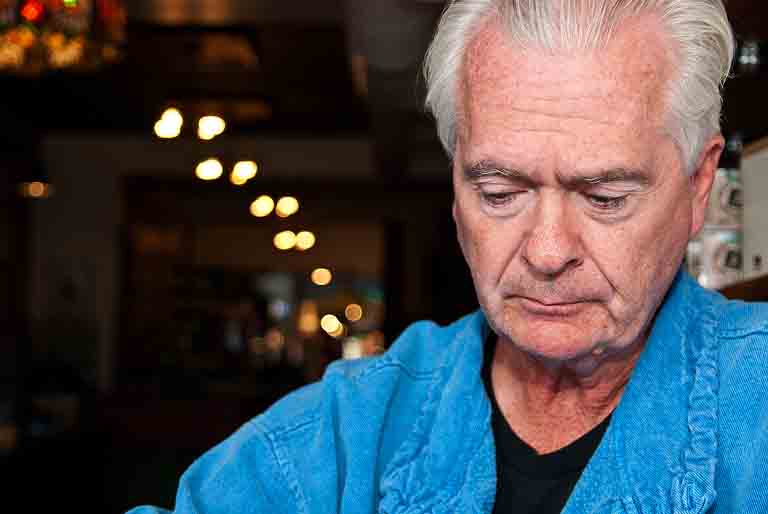
The CHP also has platform policy statements speaking to immigration, specifically regarding refugees having to only use ports of entry. Of course this is reference to the Roxham Road, Quebec issue where people are not only fleeing strife in their native countries, but also ICE who want to send them back.
“Here you have these people who are probably illegal in the States, so they flood this country because of whatever conditions, life threatening, economical, or whatever, now they are coming to Canada to avoid being captured by ICE.”
“They end up in Canada, now they are on our turf, our soil, our doorstep as refugees. Canada has always been an open, receiving country, if you want to immigrate here, you’re welcome to come here. If you’re a refugee, we’re going to hear what your story is and we’re going to make a decision on whether or not you can come in. Canada has always been that way and should continue to be that way and there should be no disruption to that”
“The problem is, it has completely bogged down the infrastructure we have for accommodating refugee claims. You do have people in other countries living in refugee camps that are hoping to come here. They’ve gone through the channels to try and get here. All of that gets pushed back. They’ve got just as much right. Maybe their need is greater than what these people crossing our border. They’re in the States. Are they in terrible danger? They’re in terrible danger of maybe being caught by ICE, but are their lives in danger?”
Wrap Up
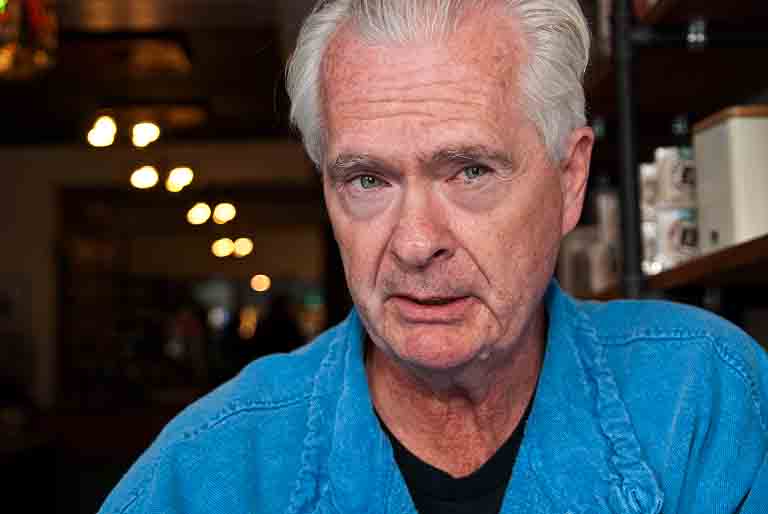
As always, in case there’s an issue not brought up in conversation candidates wonder when it will be asked about, the opportunity to have the last word is theirs.
“As a candidate being able to offer to voters a very sincere chance, literally, to get the blood off of their hands and the blood I’m talking about is the blood of abortion, we’re the only party that is committed to stopping this. I know the PPC, they’re talking about it, we’re the only ones committed to it. The rest are a write off. I want to say to voters when you vote for any of these parties you actually partake of what they do. They sanction this sort of stuff. Knowing that in advance, that makes you partake of it as well. That is part of why I’m here.”
“Am I going to get voted in? That’s an act of God that would do that. If you can get to that National platform and be able to represent the Christian voice, that’s going to give strength to some people out there to say I’m going to take a step closer to God.”
(Photos by Swartz – SUNonline/Orillia)
Other Candidates:

